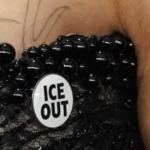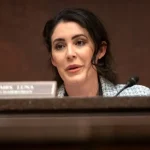
“Better late than never,” the saying goes.
And in that spirit, eight New York Times columnists admitted writing and publishing mistakes in their thinking concerning former President Donald Trump’s supporters, the Biden economy and Facebook.
“[H]ere at Times Opinion, we still hold on to the idea that good-faith intellectual debate is possible, that we should all be able to rethink our positions on issues, from the most serious to the most trivial,” the outlet said.
“It’s not necessarily easy for Times Opinion columnists to engage in public self-reproach, but we hope that in doing so, they can be models of how valuable it can be to admit when you get things wrong.”
Bret Stephens, in his mea culpa piece, recounted that in the first sentence of the first column he ever wrote about Trump’s presidential candidacy in 2015 he argued, “If by now you don’t find Donald Trump appalling, you’re appalling.”
Stephens stood by his “dozens of columns denouncing Trump as a unique threat to American life, democratic ideals and the world itself. I regret almost nothing of what I said about the man and his close minions. But the broad swipe at his voters caricatured them and blinkered me.”
(Blinkered refers to having a limited understanding or the blinders used on horses to keep them looking straight head; it’s properly an adjective, not a verb as Stephens used it here, which might be why I had to look it up.)
Stephens explained his regret in caricaturing Trump voters, as “It also probably did more to help than hinder Trump’s candidacy.”
“[I]n my dripping condescension toward his supporters, I was also confirming their suspicions about people like me,” Stephens added.
Were you surprised to see these columnists admit their mistakes?
Yes: 90% (43 Votes)
No: 10% (5 Votes)
In other words, they live in liberal la la land.
“What Trump’s supporters saw was a candidate whose entire being was a proudly raised middle finger at a self-satisfied elite that had produced a failing status quo,” Stephens wrote.
The columnist did offer the qualification at the end of his story that if Trump supporters are still with him after the Jan. 6 incursion, they are “morally” wrong.
Trump was “trying to break the Republic itself,” Stephens contended.
Well, to clue him in on the way more Trump supporters think: It was the Democrats in the lead up to the 2020 election who were breaking the republic.
Democratic officials unilaterally changed election laws and procedures without legislative approval in multiple swing states. The changes cast doubt about the integrity of the election in the minds of many and hence the massive protests.
So Stephens gets some credit for admitting Trump voters aren’t necessarily all bad people, but misses the mark by suggesting they they’re ignoramuses blindly following their leader.
Krugman, like Stephens, hedged on just how wrong he was in his Times piece about inflation. The liberal economist’s column focused on whether and how much the $1.9 trillion American Rescue Plan, signed into law by President Joe Biden in March 2021, contributed significantly to inflation reaching a 40-year-high now.
“Some warned that the package would be dangerously inflationary; others were fairly relaxed. I was Team Relaxed,” Krugman wrote.
“As it turned out, of course, that was a very bad call.”
He noted that former President Bill Clinton Treasury Secretary Larry Summers had been among those sounding the alarm as the legislation was making its way through Congress. In a February 2021 Washington Post opinion piece, Summers wrote that passing the American Rescue Plan, given the economy was already well into a recovery, “will set off inflationary pressures of a kind we have not seen in a generation, with consequences for the value of the dollar and financial stability.”
After it passed the following month, Summers called it “the least responsible macroeconomic policy we’ve had in the last 40 years.”
He was right; and Krugman had supported that irresponsibility, even championed it.
The legislation resulted in the federal government paying people not to work through stimulus checks, enhanced unemployment benefits and monthly child “tax credit” direct deposits to parents.
The Foundation for Government Accountability calculated last summer that when the benefits were added to existing benefits for lower-income Americans, that worked out to about $3,700 per month for a two-child family, or $44,300 per year in payments — to do nothing.
FedEx founder Fred Smith said his company saw a direct impact from the American Rescue Plan, reporting job applicants to his company dropped by more than half in May 2021 when the stimulus checks went out. The number of applicants remained below average until well into the fall.
Krugman conceded he has been wrong about inflation; he just wasn’t willing to say how much the American Rescue Plan played into it.
“Much, although not all, of the inflation surge seems to reflect disruptions associated with the pandemic,” he claimed.
He also pointed to Russia’s invasion of Ukraine and China’s COVID lockdowns as contributing factors.
Krugman concluded, “In any case, the whole experience has been a lesson in humility.”
Finally, Times columnist Farhad Manjoo conceded he had been completely wrong when he predicted in 2009 that Facebook would be a force for good in society.
“I didn’t consider the far-reaching implications of Facebook’s ubiquity,” he wrote.
Specifically, Manjoo did not foresee the rise of smartphones meaning people could easily spend endless hours on social media.
Then-President Barack “Obama’s regulators allowed Facebook to buy up its biggest competitors — first Instagram, then WhatsApp — and failed to crack down on its recklessness with users’ private data,” he wrote.
“[W]hat bothers me is the matchless power that people like [Facebook CEO Mark] Zuckerberg have acquired through their inventions. It does not seem in any way good for society — for the economy, for politics, for a basic sense of equality — that a handful of hundred-billion-dollar or even trillion-dollar companies should control such large swathes of the internet.”
This week is not the first instance of people at the Times called themselves out for missing the mark.
Following Trump’s surprise victory in 2016, then Times publisher Arthur Sulzberger Jr. and executive editor Dean Baquet wrote a letter to their readers essentially admitting they did not cover the race as they should have.
“After such an erratic and unpredictable election there are inevitable questions: Did Donald Trump’s sheer unconventionality lead us and other news outlets to underestimate his support among American voters?” Sulzberger and Baquet asked.
Maybe. Something certainly did — and perhaps still does.








